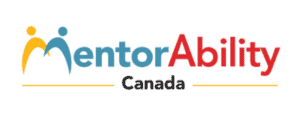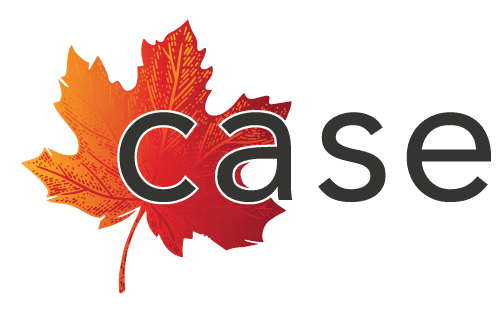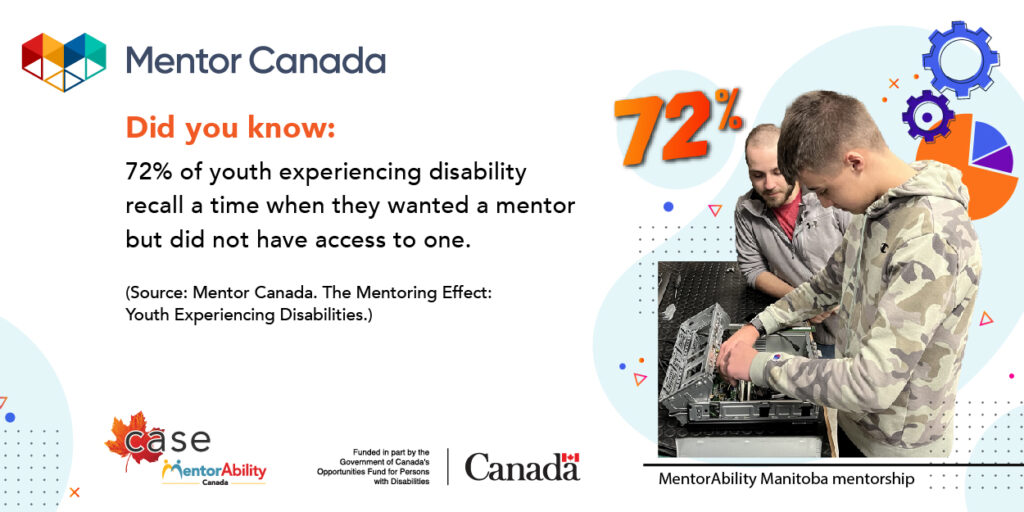January is Mentoring Month
MentorAbility Canada and
Mentor Canada Collaboration


January is Mentoring Month. Please join us in raising awareness of the importance that mentorship plays in supporting youth who experience disability in their career exploration and employment aspirations.
CASE’s MentorAbility Canada and Mentor Canada have been collaborating to elevate the importance of mentoring for youth experiencing disability, which can support career exploration and general social inclusion.
Mentor Canada accelerates and scales world-class mentoring in Canada. To do this, Mentor Canada works on four key areas: research, technology, partnership networks, and outreach and dissemination.
Mentor Canada conducted a research initiative called The State of Mentoring that revealed the mentoring gap in Canada, especially for youth experiencing disability. According to this study, 72% of youth with a disability recall a time in their childhood or adolescence when they wanted a mentor but did not have access to one.
This mentoring gap has negative consequences on the well-being, education, and employment of youth experiencing disability.
That is why Mentor Canada is committed to developing tools to support youth and accessibility to mentoring, in collaboration with MentorAbility Canada, an initiative of the Canadian Association for Supported Employment (CASE).
MentorAbility Canada and Mentor Canada share the same vision of a future where all young people have access to mentoring opportunities that help them acquire skills, explore career options, and access the labour market.
This collaboration provides private businesses, non-profit organizations and public sector employers with the opportunity to:
- help promote the employment of persons experiencing disability,
- learn about individual experiences of disability,
- recognize talent and potential,
- develop lasting relationships with leaders in the disability community,
- tap into a pool of potential future employees,
- and demonstrate community leadership.
Both organizations use technology to support and improve mentoring programs and initiatives, by offering tools and resources tailored to the needs of young people and mentors.
They also collaborate with various stakeholders, such as governments, the private sector, schools, and community organizations, to strengthen the capacity of the mentoring sector and fill the gaps in mentoring services and opportunities.
Finally, they celebrate the success stories and positive impacts of mentoring on the personal and professional development of young people, especially those living with disability.


